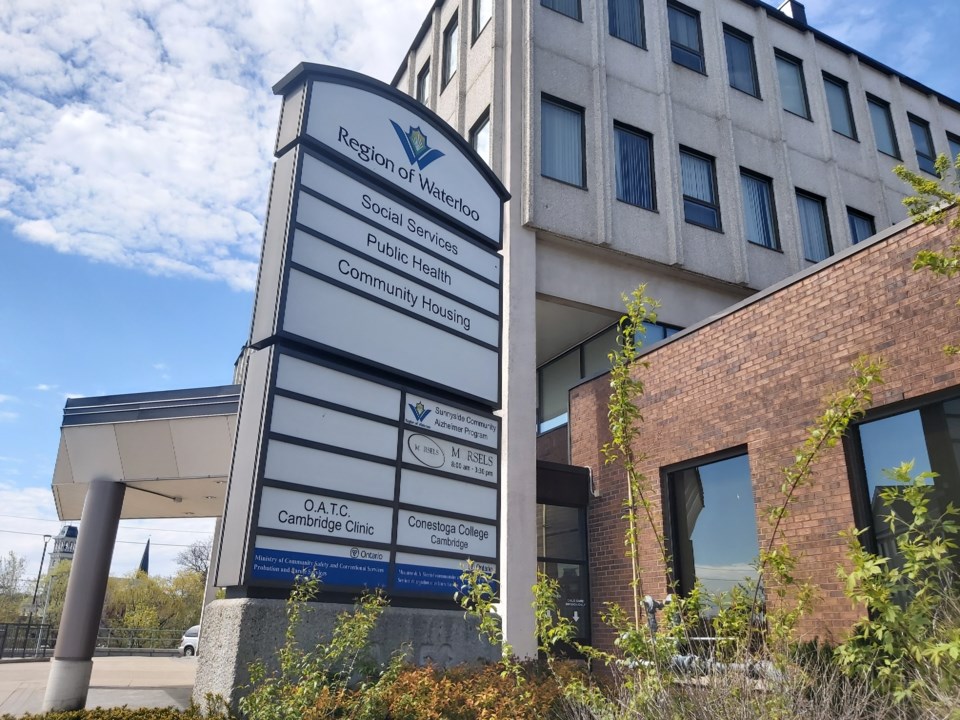The anchor agency for the Cambridge drop-in centre, set up by the region to support people experiencing homelessness during the first wave of the pandemic, is entering into a renewable two-year lease agreement to extend its programming at 150 Main St.
The Region of Waterloo’s committee of the whole approved a recommendation last week that will see the AIDS Committee of Cambridge, Kitchener-Waterloo, and Area (ACCKWA) continue to run a Cambridge Multi-Agency Community Space (MACS) out of the region’s Public Health and Social Services building in downtown Galt.
“We’ve never had such centralized services in Cambridge before,” executive director of ACCKWA Ruth Cameron told councillors.
As access to services became limited during the first wave of COVID-19, the agencies that support the city's vulnerable individuals sought ways to close the gaps created when shelter spaces closed down and outreach services were disrupted.
The solution brought supporting agencies together under one roof to create the Cambridge Multi-Agency Community Space (MACS) drop-in at 150 Main starting in May of 2020.
Anchored by ACCKWA, the hub also receives support from Langs Community Health Centre, the Cambridge Self Help Food Bank, the Canadian Mental Health Association, Sanguen Health Services, and Lutherwood Housing Services.
With a focus on delivering basic, life-saving needs, Cameron said the “groundbreaking hub model” offers anyone that comes through their doors, access to food security programs, a housing list, emergency shelter, primary health care, and harm reduction supplies for unhoused individuals living in encampments in Cambridge. It also runs a Working to Improve Neighbourhood Safety (WINS) peer-based needle recovery program.
The new lease agreement, which comes with a quid-pro-quo lease rate of $1, effectively begins July 1 and provides 1,400 square feet of space for ACCKWA. The region will pay for costs to support the operation, including cleaning, phone and internet access, and waste disposal.
“It’s an ideal location for accessing those life-affirming services, but also offers safety in a regional government building that has security in it,” she said. This is especially important given the animosity facing some of these individuals in the community, Cameron added.
Jenn Boyd, manager of harm reduction program for ACCKWA, said before the pandemic the agency was already experiencing a "severe increase" in people seeking its services.
“Since the pandemic began, ACCKWA has seen a 100 per cent increase in individuals seeking harm reduction services,” she said.
The hub model also creates potential to offer services outside of regular hours, which are Monday to Friday from 8:30 a.m. to 4:30 p.m.
Prior to ACCKWA hosting its services at 150 Main Street, individuals in Cambridge with HIV had to travel to Kitchener. At its new location, they’ve been able to expand core services of health promotion, harm reduction, and anti-stigma work.
“We are thankful for so many agencies coming together to address the gaps that COVID exacerbated,” Boyd said. “Our services have often been displaced as harm reduction is such a polarizing topic in the city of Cambridge. It makes it difficult to find a place to do this kind of work.
“It’s been a really beautiful experience to be a part of.”
Amy Wells, who manages the Cambridge MACS, says the drop-in is trying to catch people at the beginning of homelessness and offer outreach and “wrap-around support much faster.”
She said in the first week of May alone, the drop-in welcomed four people they’ve never seen before. Many of the people they serve are “fairly removed from society” and are encouraged to come to the drop-in because it offers a safe place to access services.
Over the last year, Cameron estimates the drop-in has welcomed close to 130 people, most of whom sought support during the coldest months of the year.
“This is such good work and you give people hope by providing these services," said regional councillor and deputy Cambridge Mayor Mike Mann in supporting the recommendation. "They’re so important for getting people on the right track.”


